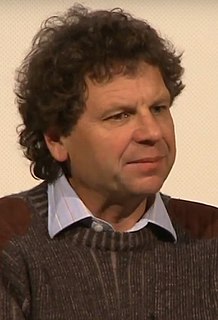A Quote by Mark Haddon
At 20, 25, 30, we begin to realise that the possibilities of escape are getting fewer. We have jobs, children, partners, debts. This is the part of us to which literary fiction speaks.
Related Quotes
It remains a mystery to me why some of that [pulp] fiction should be judged inferior to the rafts and rafts of bad social [literary] fiction which continues to be treated by literary editors as if it were somehow superior, or at least worthier of our attention. The careerist literary imperialism of the Bloomsbury years did a lot to produce fiction's present unseemly polarities.
Memoirs have dominated the literary scene now for ten or 20 or even 30 years: most of them seem to use the conventions of fiction and it's astonishing how in so many of these books people seem to be able to remember conversations that took place when they were five years old and give three pages of coherent dialogue, which is utterly impossible.
We need to lengthen the school day. We need to lengthen the school year. Our calendar is based upon the agrarian economy. Children in India and China are going to school 25, 30, 35 more days a year. They're just working harder than us. So, we need more time, particularly for disadvantaged children, who aren't getting those supports at home.
There's no real objection to escapism, in the right places... We all want to escape occasionally. But science fiction is often very far from escapism, in fact you might say that science fiction is escape into reality... It's a fiction which does concern itself with real issues: the origin of man; our future. In fact I can't think of any form of literature which is more concerned with real issues, reality.
People talk about [Bashar] Assad running Syria. He doesn't control his own country. He's down to about 20, 25 percent of the country. What is this fiction that he is somehow the only person who can save Syria? There's - with Assad there, there is no Syria. So that's what the Iranians and the Russians need to really begin to focus in on.
[Michael] Chabon, who is himself a brash and playful and ebullient genre-bender, writes about how our idea of what constitutes literary fiction is a very narrow idea that, world-historically, evolved over the last sixty or seventy years or so - that until the rise of that kind of third-person-limited, middle-aged-white-guy-experiencing-enlightenment story as in some way the epitome of literary fiction - before that all kinds of crazy things that we would now define as belonging to genre were part of the literary canon.
Read Mann's notes, which contain precise accounts of cholera and its symptoms, and observe how careful he is throughout his fiction in getting medical details straight - then you might begin to wonder whether cholera is the only candidate for the cause of Aschenbach's death. What results from this, I think, is a deeper appreciation of Mann's brilliance in keeping so many possibilities in play. The ambiguity is even more artful than people have realized.
The provincial intellectual is doomed to arguing at low level... there is still no Australian literary world, not in Sydney, Melbourne, Adelaide. It is some consolation to realise that there is no literary world in Birmingham or Los Angeles either. I have heard there is one in Montreal, but I don't believe it. The literary world is in London and New York, the only cities big enough to sustain magazines which can afford to reject copy.
Investing intelligently in those of us who are marginalised means fewer people in jail, fewer homeless, fewer unemployed, fewer of us who are forlorn and depressed, fewer people addicted to things that drag us down... Because as we invest in those that do it tough, we will see more Australians taking pride in themselves, having realisable dreams and aspirations and making their own positive contribution to the world's greatest nation.







































